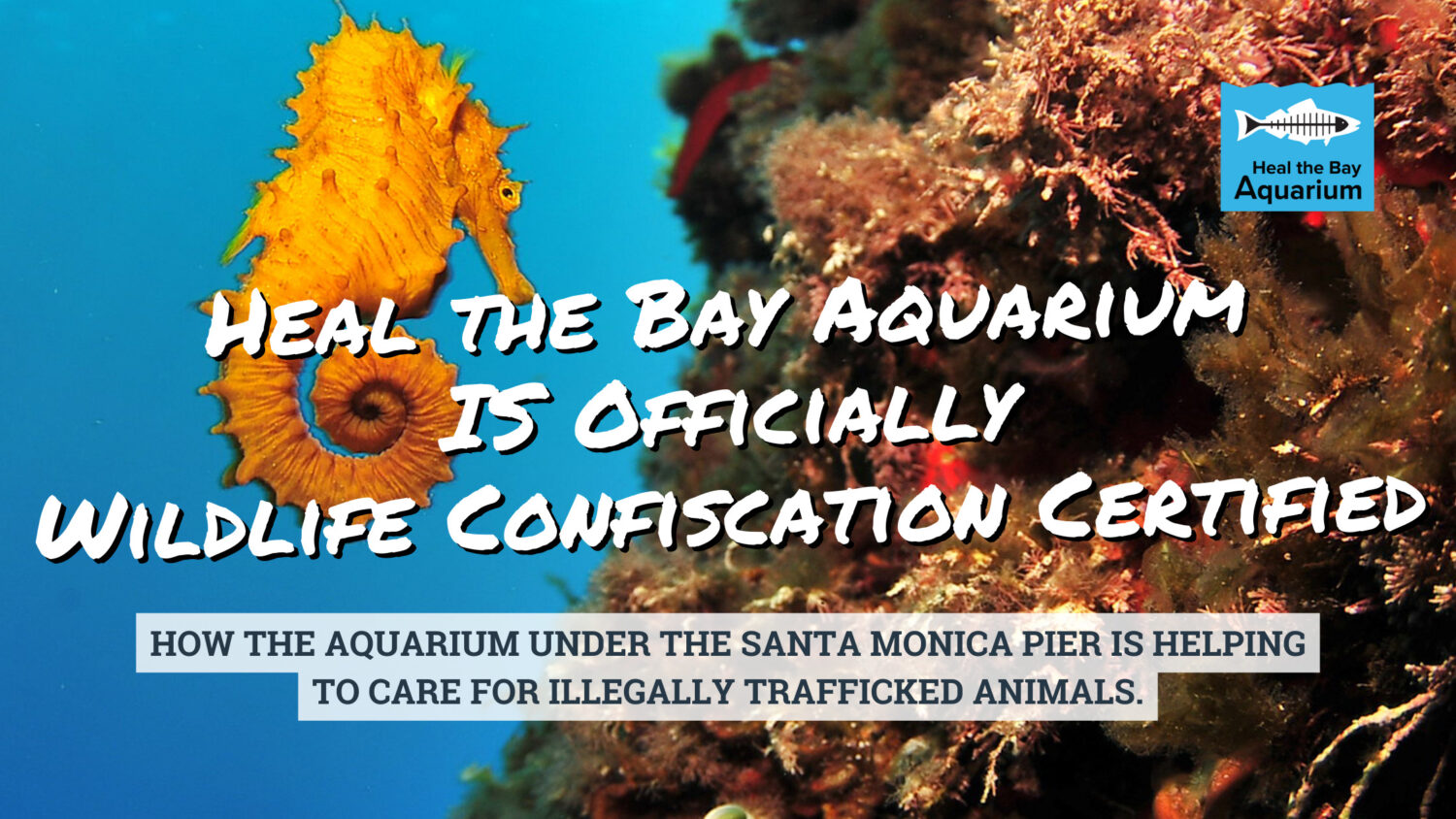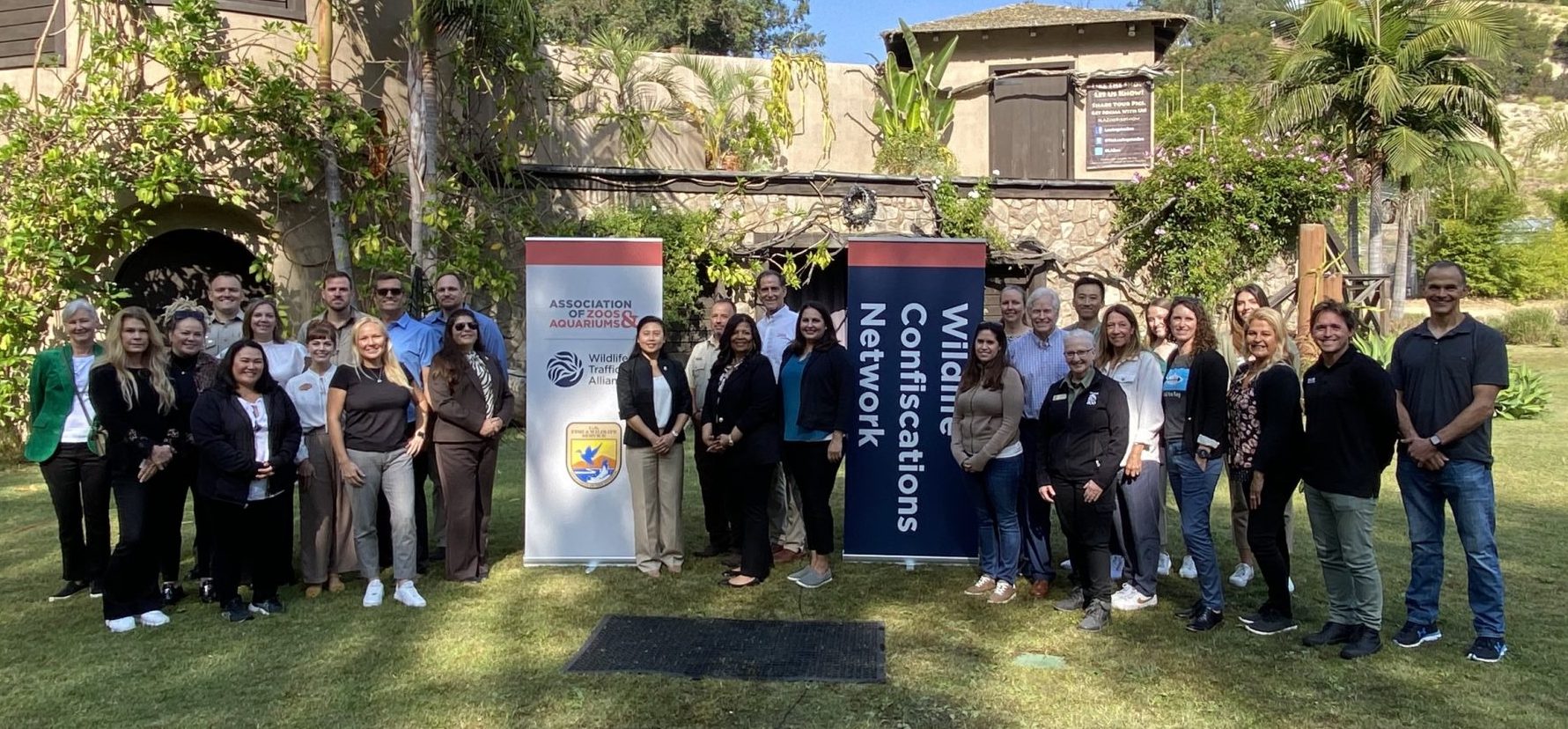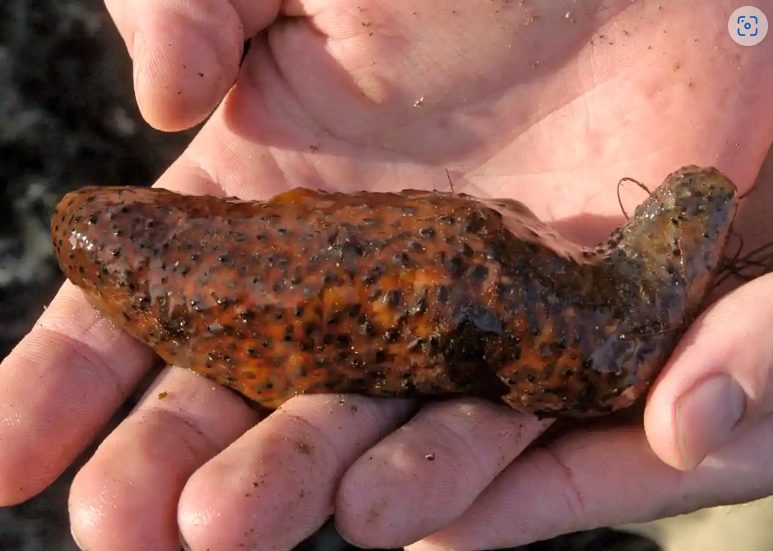Heal the Bay Aquarium Joins the Wildlife Confiscation Network to Provide Care and Welfare for Animals Confiscated from Illegal Wildlife Trade.

When marine animals are seized in illegal animal trafficking cases, those animals must be cared for by certified Aquariums and Zoos until a verdict can be rendered. That’s where Heal the Bay steps in.
From the desk of Laura Rink, Associate Aquarium Director of Operations, Heal the Bay Aquarium.
Heal the Bay Aquarium is officially a proud member of the Association of Zoos and Aquariums (AZA) Wildlife Trafficking Alliance, a network pilot program that provides a coordinated response for the care and well-being of wildlife confiscated from illegal trade.

In late October 2023, Heal the Bay joined the U.S. Fish and Wildlife Service and the Association of Zoos and Aquariums for a press conference at the Los Angeles Zoo to announce the launch of the Wildlife Confiscations Network in Southern California (see image above).

“In September 2023 Wildlife traffickers pleaded guilty in federal court in California to illegally importing endangered sea cucumbers – which are prized in China for food and medicine and as a reputed aphrodisiac – from Mexico.” – (Sean Hiller/AP) The Guardian
Online marketplaces and social media have made it significantly easier for consumers to illegally acquire wild animals. Every year, millions of trafficked animals fuel this global demand. Wildlife trafficking decimates species in the wild, fuels criminal networks, destabilizes governments, encourages corruption, and threatens human and animal health through the transmission of diseases.
Joining this network is an amazing opportunity for Heal the Bay Aquarium to continue its work with partner aquariums and environmental organizations to conserve, protect, and care for the local habitats and species specific to the Santa Monica Bay. This new Wildlife Conservation Network Certification identifies Heal the Bay Aquarium as a facility qualified to provide the housing and welfare for marine species that are confiscated by the US Fish and Wildlife Service from illegal wildlife trade.
We hope that through our collaborative efforts, we will not only be able to save the lives of many species but also contribute to effectively combating illegal wildlife trafficking.
Please note: The Aquarium does not accept public animal drop-offs. If you encounter a potential wildlife crime, please report it to the Service’s wildlife trafficking tips line at 1-844-FWS-TIPS (397-8477) or online at: https://www.fws.gov/wildlife-crime-tips. If your tip leads to an arrest, or other substantial action, you may be eligible to receive a financial reward.
____________________________________________________
From the U.S. Fish and Wildlife Service NEWS DESK

Date: EMBARGOED UNTIL 11:00 AM PT ON FRIDAY, OCTOBER 27, 2023
Contact: publicaffairs@fws.gov
New Network Gives Hope to Animals Trafficked Through Illegal Wildlife Trade
U.S. Fish and Wildlife Service and the Association of Zoos and Aquariums announce a pilot network in southern California to provide care and welfare for animals confiscated from illegal trade.
The U.S. Fish and Wildlife Service and the Association of Zoos and Aquariums today announced the launch of the Wildlife Confiscations Network in southern California. The network is a pilot program of AZA’s Wildlife Trafficking Alliance that provides a coordinated response for the care and well-being of wildlife confiscated from illegal trade.
Online marketplaces and social media have made it significantly easier for consumers to illegally acquire wild animals. Every year, millions of trafficked animals fuel this global demand. Wildlife trafficking decimates species in the wild, fuels criminal networks, destabilizes governments, encourages corruption, and threatens human and animal health through the transmission of diseases.
“Wildlife trafficking is a serious crime that impacts imperiled species throughout the world,” said Martha Williams, U.S. Fish and Wildlife Service director. “When live wild animals and plants are seized at U.S. ports of entry, it is critical to provide the highest standard of care as quickly as possible. It is also essential to grant safe and appropriate housing for species that cannot be returned to their country of origin. The U.S. Fish and Wildlife Service is proud to work with a broad spectrum of law enforcement and conservation partners to ensure the health, wellbeing and proper care of all seized wildlife and plants in our custody. This newly established pilot program network will help conserve animals and plants for future generations.”
Successful wildlife law enforcement often involves the seizure, confiscation, and holding of a diverse array of wild animals, notably at U.S. ports of entry or exit. In 2022, Service special agents and the Service’s law enforcement partners investigated over 10,000 wildlife trafficking cases and collected over $11,000,000 in criminal penalties. That same year, wildlife inspectors across the country worked alongside other federal agencies to process over 160,000 legal and declared shipments of wildlife products – and seize illegal shipments at U.S. ports of entry.
Through a cooperative agreement between the Service and AZA, the network will be a point of contact for wildlife law enforcement officers in southern California to lessen the logistical burden of searching for appropriate placement of trafficked animals. With a dedicated wildlife confiscations coordinator, wildlife law enforcement can now make a single phone call to relay the specific housing needs of the species involved. The coordinator will then refer to a list of fully vetted and permitted professional animal care facilities in the region to determine which can meet the case needs. Currently a pilot program, the network plans to replicate the framework developed in southern California throughout the U.S.
“Many AZA-accredited zoos and aquariums already work closely with law enforcement agencies to provide critical support for the victims of the illegal wildlife trade,” said Dan Ashe, AZA president and chief executive officer. “We are pleased to formalize this work by establishing the Southern California Wildlife Confiscations Network pilot program to ensure the ongoing conservation of threatened species and the wellbeing of individual animals. We will take what we learn in this process and begin to build out the network nationwide.”
“The U.S. Fish and Wildlife Service is proud of the work AZA has done to establish the Wildlife Confiscations Network,” said Ed Grace, assistant director of the Service’s Office of Law Enforcement. “Using the network to coordinate placement and care of seized live animals will enhance wildlife law enforcement’s ability to effectively combat illegal wildlife trafficking. This program exemplifies how working together can help serve the American public.”
If you encounter a potential wildlife crime, please report it to the Service’s wildlife trafficking tips line at 1-844-FWS-TIPS (397-8477) or online at: https://www.fws.gov/wildlife-crime-tips. If your tip leads to an arrest, or other substantial action, you may be eligible to receive a financial reward.
____________________________________________________
About the U.S. Fish & Wildlife Service:
The U.S. Fish and Wildlife Service works with others to conserve, protect and enhance fish, wildlife, plants and their habitats for the continuing benefit of the American people. For more information, visit www.fws.gov, or connect with us through any of these social media channels: Facebook, X (formerly Twitter), Instagram, YouTube and Flickr.
About AZA:
Founded in 1924, the Association of Zoos and Aquariums is a nonprofit organization dedicated to the advancement of zoos and aquariums in the areas of conservation, animal welfare, education, science, and recreation. AZA is the accrediting body for the top zoos and aquariums in the United States and 12 other countries. Look for the AZA accreditation logo whenever you visit a zoo or aquarium as your assurance that you are supporting a facility dedicated to providing excellent care for animals, a great experience for you, and a better future for all living things. The AZA is a leader in saving species and your link to helping animals all over the world. To learn more, visit https://www.aza.org/.
About AZA’s Wildlife Trafficking Alliance (WTA):
The Wildlife Trafficking Alliance is a coalition of over 90 nonprofit organizations, companies, and AZA-accredited zoos and aquariums, working together to combat illegal wildlife trade around the world. To learn more, visit aza.org/wildlife-trafficking-alliance.
ACTION LINK(S)


